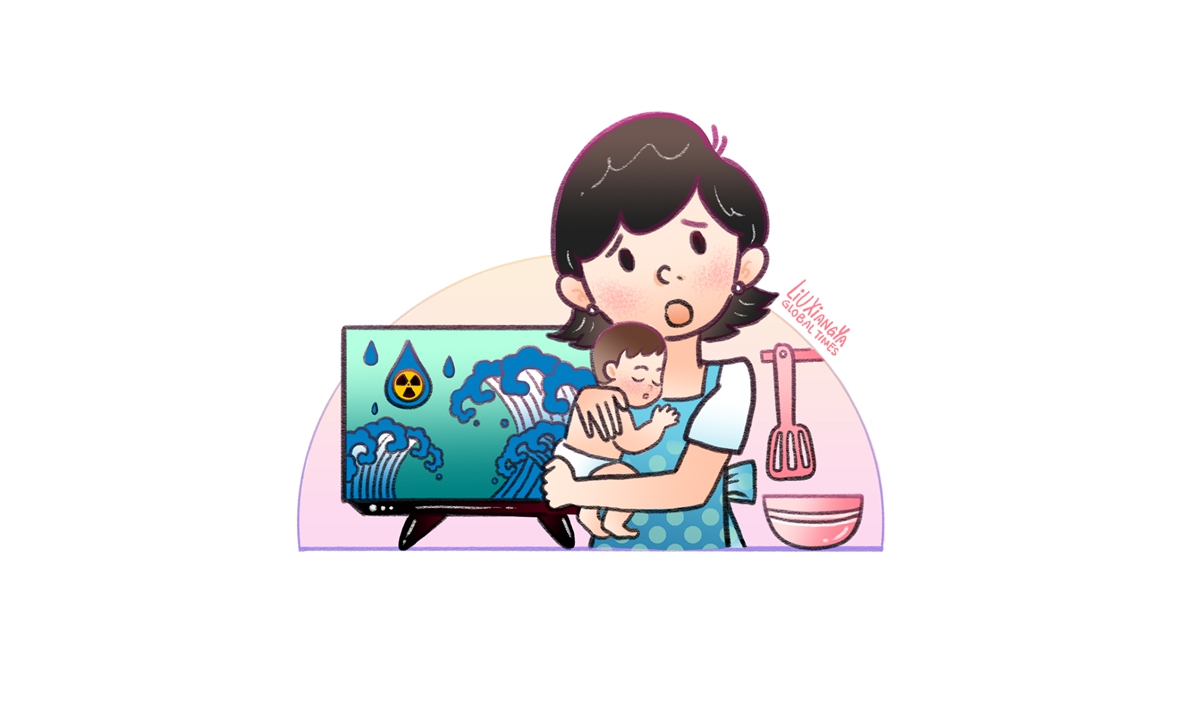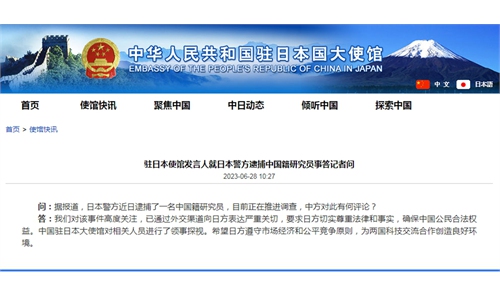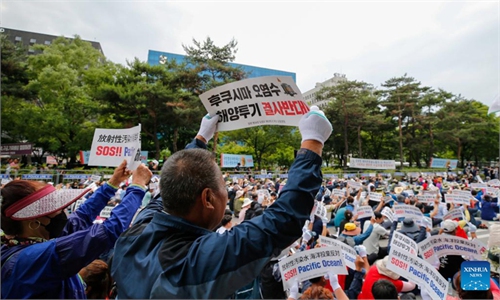ARTS / CULTURE & LEISURE
A mother’s nightmare of kid’s nuclear water-inundated future

Illustration: Liu Xiangya/Global Times
Recently, I have sometimes woken up from nightmares in which a mother is crying hysterically while holding a deformed baby. I believe these dreams were sparked by the fear of Japan's plan to soon dump Fukushima nuclear-contaminated water, and some lurid pictures of victims of Minamata disease in Japan during the 1950s.
Like many mothers, I have had deep anxiety about my 1-year-old's food and daily supplies as Japan's announced date of discharging the radioactive water into neighboring sea draws near. When purchasing seafood, I carefully check the country of origin. I buy domestically produced seafood, and meanwhile, I would purchase more expensive fish and shrimps imported from other regions.
However, the thought that Japan will officially begin implementing its dumping plan, which will soon affect the waters around China, fills me with depression. Will my baby no longer be able to eat seafood in the future? It's not just about seafood; items like seaweed and kelp are also a concern.
In addition, there is also cause for concern regarding some mother and baby products originating from these radiation-affected areas, since maternal and child products made in Japan are widely purchased by Chinese parents. On social media, some mother-and-baby bloggers have noticed the mothers' concerns and earnestly listed the origin of Japanese baby products and their corresponding alternative products.
For example, they point out that the production site of a popular baby bottle is located near an area affected by the Fukushima nuclear power plant disaster.
I feel I have no choice but to quietly replace the Japanese brand mother-and-baby products with some domestically produced products or brands from Europe. However, the thought that some domestic products may partially source materials from Japan also makes me feel uneasy.
During the Dragon Boat Festival holidays, when I gathered with some childhood friends who had just become mothers, we enthusiastically discussed our babies' most adorable moments. Someone suggested we take a tour to Beidaihe, a seaside resort in North China's Hebei Province so the children could see the beauty of the sea.
However, when mentioning Japan's dumping plan, everyone fell silent. Another friend said it would be safer to go somewhere away from the sea. However, should our babies be deprived of their freedom to go to the sea just because of certain country's selfish act? My mind is screaming in anger.
Almost every WeChat group related to infants I have visited are full of complaints from mothers toward the dumping plan. Mothers are worrying about their babies' health and condemning Japan for its irresponsible behavior. Parents whose children are in school are carefully inquiring about the sources of ingredients in school cafeteria.
The moms from radiation-affected areas in Japan must also be struggling with the same concerns. They are probably having an even harder time.
A friend of mine recently went to Fukushima, Japan for a business trip. She told me that there are hardly any young people left in that area, only elderly residents. Any young mothers present are probably just visiting temporarily during the holidays to see their families.
As a mother, I want to ask: Did the tragedy of the Minamata disease caused by the consumption of contaminated seafood half-century ago not prompt Japan to reflect?
Now, you are repeating the same mistake by selfishly and irresponsibly discharging nuclear-contaminated water into the ocean. Do you want to drag the whole world into reliving that nightmare or a new disease stemming from nuclear-contaminated water?
As a mother, all I want is to give my baby the best for his future. That's the only wish I have.
The author is a Global Times reporter in Beijing. life@globaltimes.com.cn


